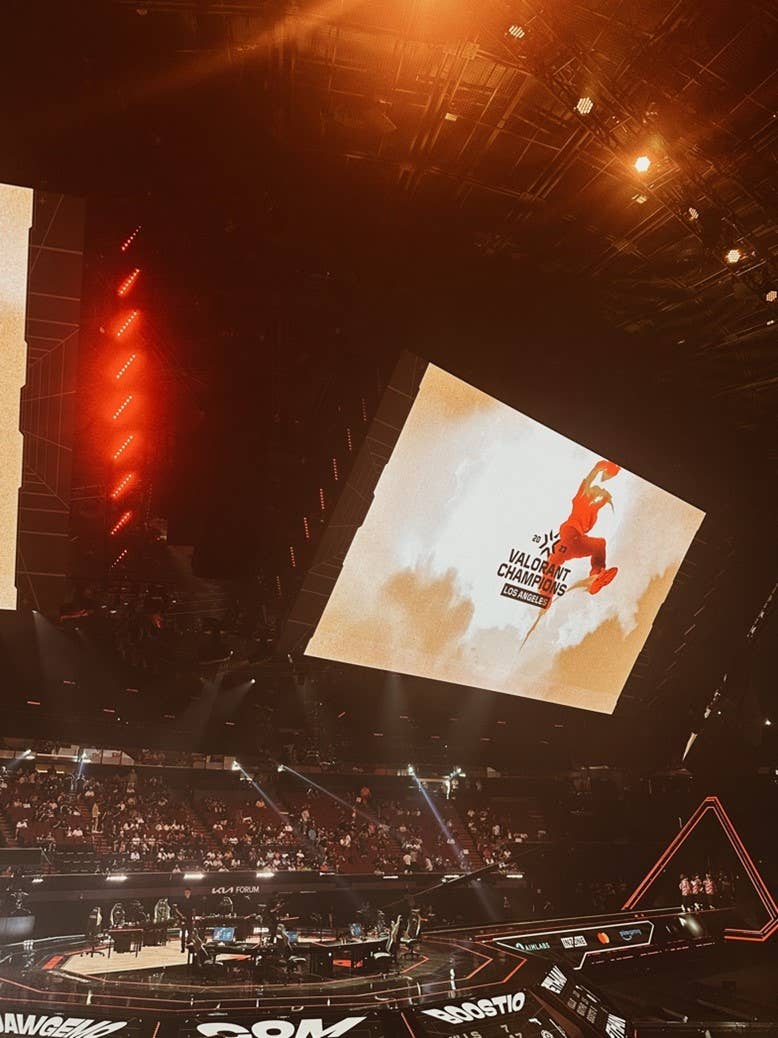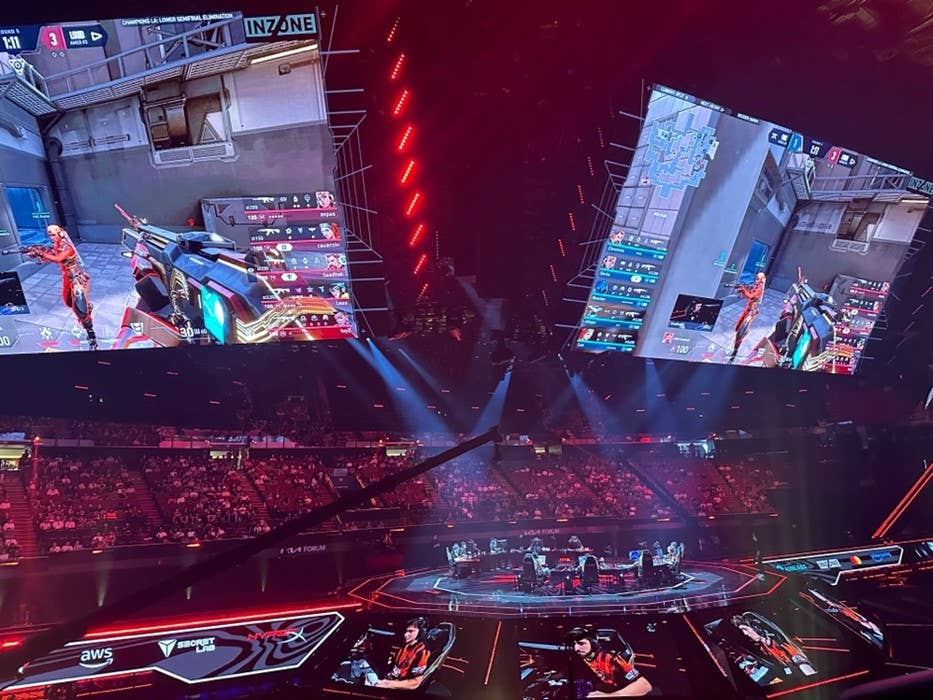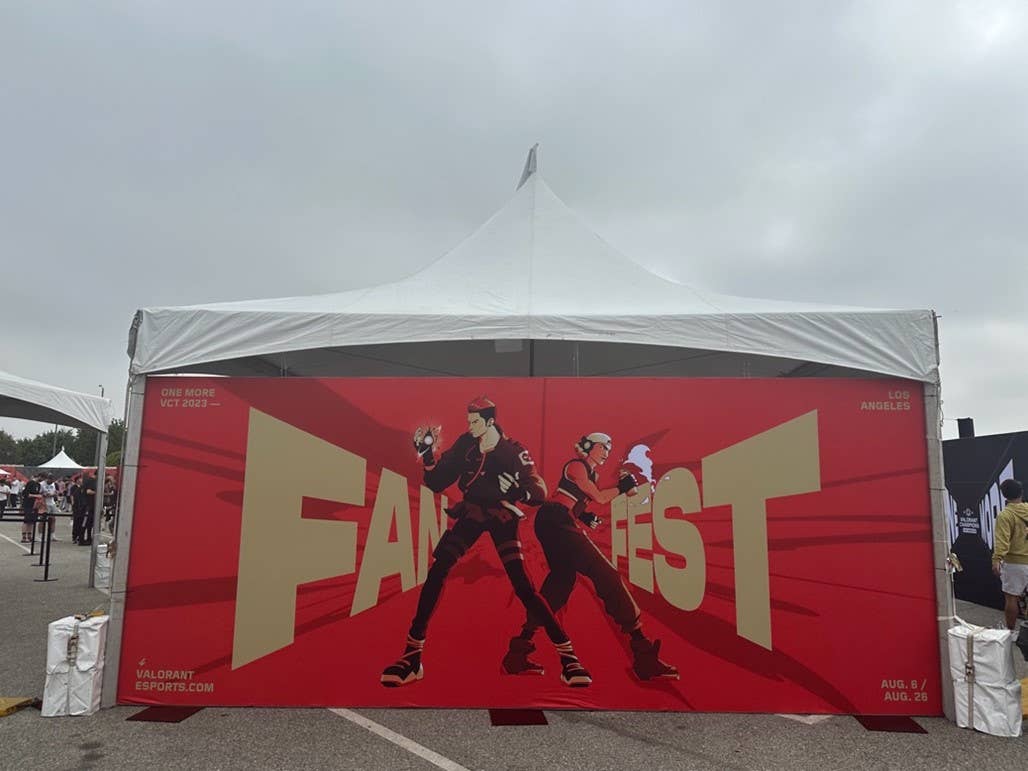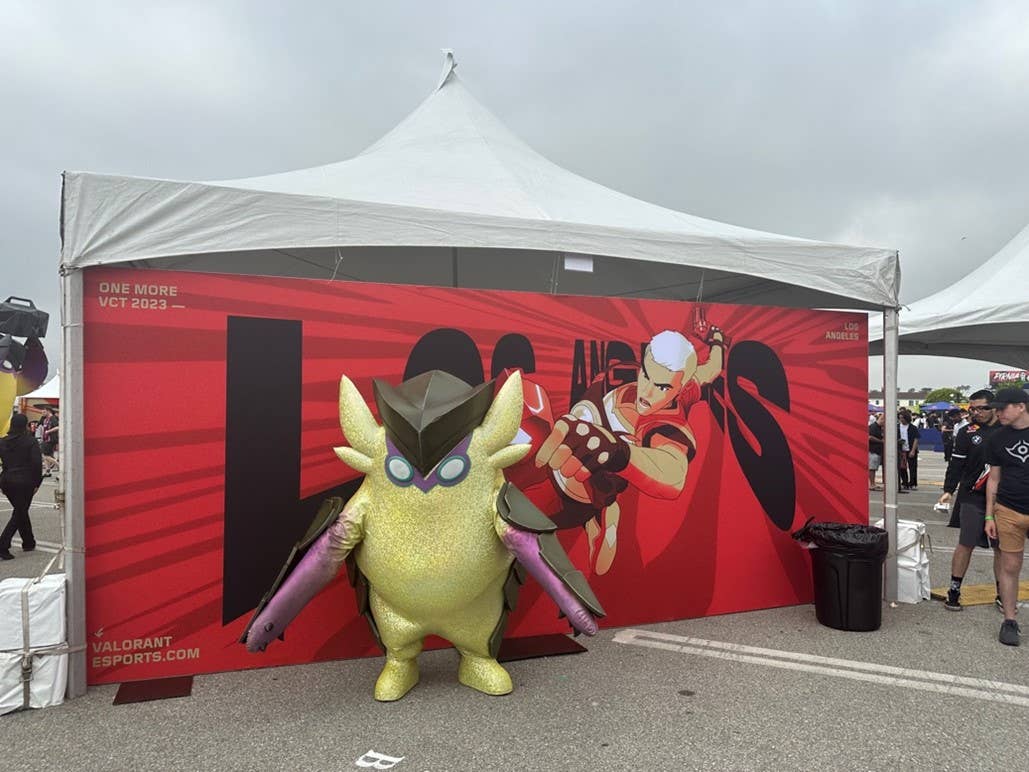The spectrum of gaming is vast from being casual with low time and energy commitment to being pursued as a dedicated competitive career that comes with a celebrity status and building a sustainable life. Gaming has outgrown the traditional mold of being what parents once deemed as a lazy, unproductive, and brainwashing activity - it’s now entered the realm of a unique type of traditional sports. And now with the state of current events (I.e. writer’s strike) in the world of entertainment and with gaming landing outside the scope of these matters, broadcasters strive in adopting new formats and esports could be the attractive alternative in filling that gap.
The way people love going to Dodgers and Lakers games is the kind of spirit I carry with me when going to Esports tournaments. The energy inducing crowd, the insane exciting plays, the filled stadium of loud cheers, and the shared emotions of nostalgia, excitement, and anxiety. Most recently I got to live this all over again at Valorant Champs 2023 held at the Kia Forum in Los Angeles, CA.

Quick breakdowns: What is Valorant and what is Champs?
Valorant is a 5v5 FPS (first person shooter) game. If you’re a gamer – think a crossover between Overwatch (multiple agents with different skill sets) and Counter-Strike (pacing and gun selection). If you’re not a gamer – the simplified objective is for each team to collaborate and communicate in taking the other team out by utilizing the skill sets of the character they know, learning the map, and acclimating to the different guns and their mechanisms. First to 13 wins.
Valorant Champions Tour (VCT) is a tourney series divided into three tiers: Challengers, Masters, and Champions. Challengers is the lowest tier, split into six regions. Teams that advance from Challengers then go onto Masters which are no longer divided by regions. And then the top tier: Champs. The top 16 teams from Masters and Last Chance Qualifiers will move onto Champs for the final tournament of the VCT. This year’s Champs was held in Los Angeles, CA and I was lucky enough to have the opportunity to attend.
We all love some good stats so here are some memorable numbers to keep in mind. The tournament was held in a stadium of the most iconic venue in Los Angeles, The Kia Forum, for a span of three days (Thursday – Saturday) - the tournament was sold out with a crowd of 11,500 people. Tickets were sold out in a matter of two minutes once released to the public and 95% of the Champs merchandise was sold out by the time Finals rolled around on Saturday. Valorant averaged over 976.8K viewers on Twitch during the Finals and the official @ValorantEsports TikTok content around Champs had a total of over 1MM+ views (not inclusive of livestream numbers).
What people love about Esports is that it is an experience built for them. Riot did an excellent job with Champs by keeping the fans at the core of every single execution from the pre-tournament outdoor Fan Fest festivities to the high level of production quality inside the venue.

The Fan Fest event was sick. There were tons of various activities to do from buying merch, playing basketball, meet & greets with the pro players, photo ops, various food trucks, and Valorant themed shops (such as Valorant themed hair dying stations, nail stations, temporary tattoo stations, etc.). The level of production was impressive, tactful, and impactful. From the lights, camera setups, multiple big screen placements to ensure every seat in the house had clear visibility on the game, sponsor logos constantly rotating around the stage, mindful brand callouts by casters/hosts, and having brand visibility be always on via the big screens validated that both the fan experience and sponsor value were kept at top of mind.


So what was the experience like? Thousands of eyes glued to the big screens and hearts divided between who they’re rooting to win and who they’re booing to lose. So many emotions shook the stadium with tides of excitement and devastation. People rising out of their seats out of anxiety as they hope their favorite team defuses the spike in time or excitement from watching their favorite player get a memorable ace for the win. The way traditional sports fanatics feel at home when they’re at any game of the sport they love, I get that in the world of gaming and Esports.
Esports, although not entirely new given its history, has woven itself into our day-to-day culture and where culture goes, brands will follow. Gaming overall skews towards the younger generation and this was apparent at Champs. They can’t help but keep their eyes glued to the screen, to the game, and to the players which means their eyes are glued to the brands and sponsors. It’s their addiction to staying in the know throughout the entire duration of these tournaments that keep them constantly reminded how this event is powered which empowers brand visibility. Brands are becoming smarter as they start to steer away from traditional formats and templates. The correct way to get consumers to advocate for the brands is taking the time to understand the analytics of the fan base so that the fan base can understand the product and build their own personal narrative for the product. Esports gives brands unique access to the youth because Esports and gaming is culture, it’s relevant, it’s growing, and it’s here to stay.
Key takeaways for why brands should sponsor Esports tournaments:
- EASY VIEWING, EASY ACCESS: Unlike traditional sports broadcasts, Esports is free for fans to watch via Twitch and YouTube and is easily accessible via mobile
- SENSE OF COMMUNITY: Broadcasts via Twitch and YouTube also have a chat function where sense of community is strong, retention rate is high (brands can integrate in-game drops during Tournaments or Watch Parties), and has consistent, active engagement amongst thousands of fans
- TALENT COLLABORATIONS: Fans not only love tuning into Esports tournaments but love tuning into tournament watch parties that their favorite talent hosts – such as Tarik, who is notorious for hosting Watch Parties for any pro Valorant games and averages over 100K in viewers during his watch parties. Great opportunities for brands to work with talent, like Tarik, in coming up with unique integrations that are memorable for the fans
- TARGETING YOUNGER GENERATION: Brands can take advantage of targeting a younger generation audience via Esports that traditional sports broadcast can’t tap into due to the expensive nature of watching, attending, and advertising around
- REBRAND AND REFRESH: Esports breaks away from the traditional template of advertising and there is a lot of room to be creative and refresh their brand in a more modern way – especially with ad blockers being more prevalent nowadays
- LONGER AIRTIME: Esports has longer airtime than any traditional sport giving sponsors longer brand visibility throughout the entire duration of the tournament
- SKY IS THE LIMIT: Esports is constantly evolving with a lot of flexibility for unique, first to market integrations that set a blueprint and success role model for other brands to follow
- CULTURAL RELEVANCY: Strong media value in sponsoring a major event for a major game that shows brands are aligned in reaching Gen Z by staying culturally relevant
- FOR THE FANS: Esports is heavily catered towards fans so being a part of the pre-hype narrative leading up to the event or curating personal experiences for fans will prove to beneficial for brand consumption, adoration, and adoption



